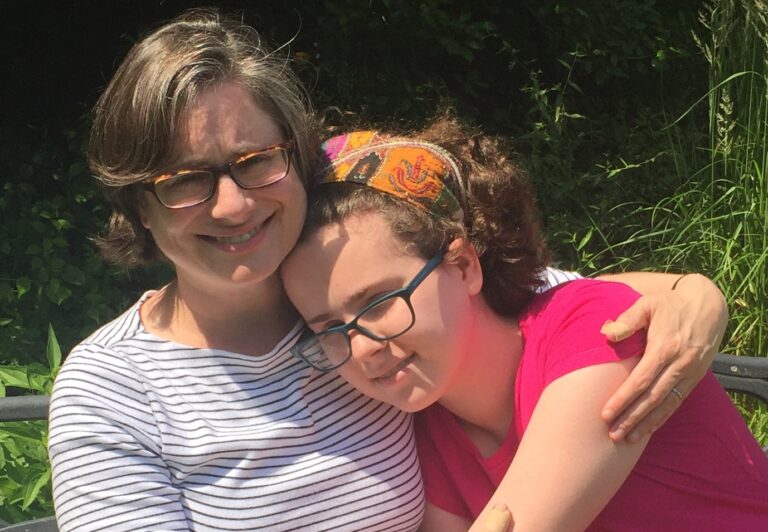Rutgers Nursing alumna shares new hopes for health care research aiming to help people with disabilities
January 13, 2024

PhD in Nursing alumna lauds recent NIH decision that recognizes people with disabilities as a minority population that experiences health disparities.
In her just-released OpEd article, appearing in the Boston Globe Media publication Stat, Rutgers School of Nursing alumna Lynne Moronski (PhD, MPA, RN) shares her very personal story of caring for a daughter with major disabilities and makes concrete recommendations for fellow scientists whose research aims to improve care for people with disabilities.
“My daughter Katie was born with severe disabilities,” Moronski writes. “She went on to develop profound autism, attention deficit disorder, and obsessive-compulsive disorder. My career as a health care manager and now a researcher has been derailed and fragmented because I have a profoundly disabled daughter who has undergone so many treatments and required special schools.”
Now, there is new hope for increased funding for research that could improve care for people like Katie and those with disabilities of all types. In late September of last year, after much debate, the National Institutes of Health designated persons with disabilities as an NIH health disparities population, Moronski explains. Other recognized health disparities groups include racial and ethnic minorities, people with low socioeconomic status, rural underserved communities, and sexual and gender minorities.
“For those with disabilities, this new designation will eventually lead to new research-based, systemwide interventions, leading to improved health outcomes,” she notes.
Moronski, who completed her dissertation last year for the PhD in Nursing program at Rutgers School of Nursing, holds prestigious appointments as an associate fellow of the Leonard Davis Institute of Health Economics and a postdoctoral fellow at the Center for Health Outcomes and Policy Research at University of Pennsylvania’s School of Nursing. As a health service researcher, she has just submitted her first grant for this new NIH funding. “I think researchers should focus on creating systemwide solutions rather than hospital-specific programs. For example, my research focuses on improving the work conditions for nurses, the largest group of health care workers in hospitals.” She desires that her research and future investigations by health services researchers from across disciplines will lead to a better world for people like Katie and her peers. This is sorely needed because Katie “has so many peers.”
Proud of her Rutgers roots, Moronski credits the School of Nursing for her grounding and early growth as a nurse scientist. “I want to say how important Rutgers School of Nursing was to my experience. I’m proud of my piece published in STAT News. Rutgers, especially my dissertation chair and mentor Dean Linda Flynn, was so important to my development. Rutgers got me going, and I remember where I came from. Success is possible.”

